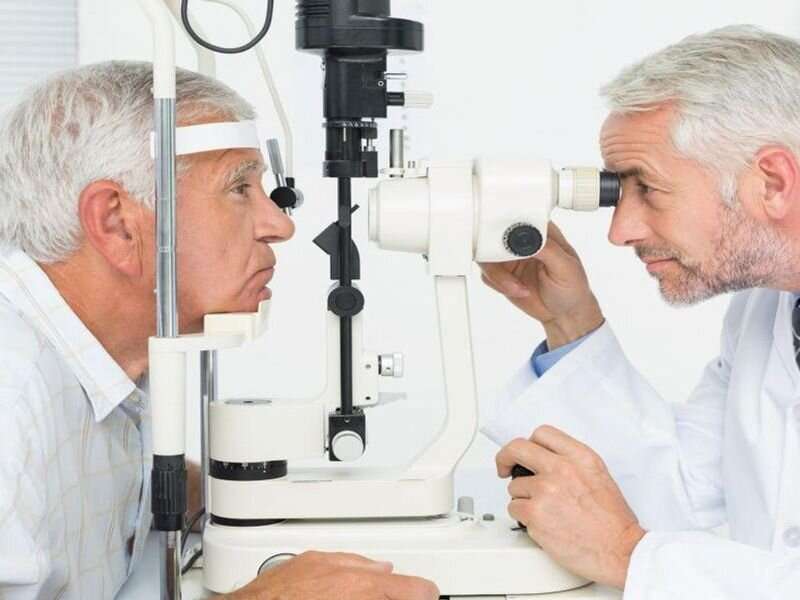Outcomes worse for immediate sequential bilateral cataract surgery

(HealthDay)—Immediate sequential bilateral cataract surgery (ISBCS) is associated with worse visual outcomes compared with short-interval (one to 14 days between operations) delayed sequential bilateral cataract surgery (DSBCS-14) and long-interval (15 to 90 days) DSBCS (DSBCS-90), according to a study published online June 30 in JAMA Ophthalmology.
Julia P. Owen, Ph.D., from the University of Washington in Seattle, and colleagues compared refractive outcomes of 1,824,196 patients with bilateral visual acuity measurement who underwent bilateral surgery in a retrospective cohort study. Participants were categorized into three groups: ISBCS, DSBCS-14, and DSBCS-90.
The researchers found that after controlling for age, self-reported race, insurance status, history of age-related macular degeneration, diabetic retinopathy, and glaucoma, compared with the DSBCS-90 group, the uncorrected visual acuity (UCVA) of the first surgical eye was 0.41 letters higher and the best-corrected visual acuity (BCVA) was 0.89 letters higher in the DSBCS-14 group; the UCVA and BCVA were 2.79 and 1.64 letters lower, respectively, in the ISBCS group. For the second eye, the DSBCS-14 and ISBCS groups had UCVA and BCVA that were 0.79 and 0.48 letters higher and 1.67 and 1.88 letters lower, respectively, compared with the DSBCS-90 group.
"Unexpectedly, the DSBCS-14 group had similar but better visual acuity outcomes that were statistically significant compared with the DSBCS-90 group," the authors write.
One author disclosed financial ties to the pharmaceutical and medical device industries.
More information:
Abstract/Full Text (subscription or payment may be required)
Editorial (subscription or payment may be required)
Copyright © 2021 HealthDay. All rights reserved.





















